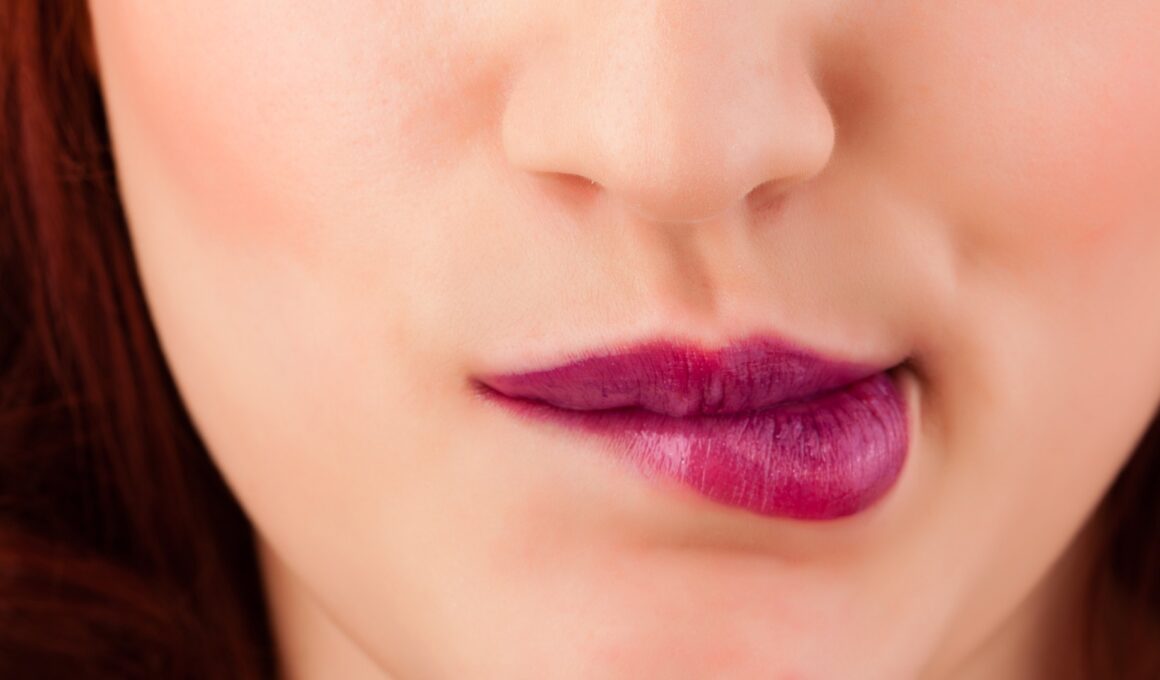Biting your lip might seem like one of those ‘harmless’ little habits but it can actually be quite a serious problem if it gets out of hand. Like all habits, lip biting has a tendency to escalate, at which point you can find yourself with constantly dry and chapped lips that don’t look attractive and are always sore.
Even if you never reach that point though, biting your lips often looks strange to others who won’t realise why you’re gurning across the table at them. And if they do know what you’re doing, then you will only look nervous and unconfident. And it’s also not attractive when you start dribbling blood.
So in other words, it’s time to stop eating your own mouth! Here are some tips to help you do just that…
Kicking the Habit
The problem with giving up biting your lips, is that it’s not a conscious process. Unlike quitting other habits (like smoking for instance), there is no conscious moment when you make the decision to start biting – rather you just suddenly notice yourself doing it and then have to try and stop yourself.
As such then, it’s not enough to simply make the decision to stop biting, you’ll have to find ways to remind yourself and prevent yourself when you’re not even aware of it. For instance…
Try Chewing Something Else: If you have an unconscious habit of chewing then the ultimate aim should be to avoid needing to do that altogether. In the meantime, one option is to try using gum as an alternative – chew that and you may find yourself with less need to chew anything else. Of course you can’t be constantly chewing gum everywhere you go, but what you can do is to at least carry it with you in case you catch yourself biting lip again.
Recognise Your Triggers: As with most destructive habits, there are certain triggers that make you particularly more likely to start biting your lip. These will be different for different people, but to identify what yours are, make sure that you write a note of the time, place and situation each time you notice yourself doing it.
This way you will create a diary of your lip biting, which you can then further use to predict future occasions when it will be more likely. For instance you may notice that you bite your lips whenever you’re working, that you bite your lips when you’re nervous, or that you bite them when your mouth is dry. Whichever it is for you, you can then find ways to try and prevent it occurring next time you’re in that situation – by asking people to tap your shoulder when they see you doing it for instance, or by just popping some gum in your mouth when you’re at work/when you’re thirsty.
Moisturise: I listed ‘when your mouth is dry’ as a possible scenario in which you might bite your lips because this is a common trigger for many people. When our mouths are dry they feel uncomfortable which can cause us to ‘fidget’, and at the same time it means our lips will probably be rough and textured providing lots of flesh to bite into and peel away.
As such, it might prove beneficial for many people to try moisturising their lips as a way to avoid situations where they would otherwise bite. Not only will this mean there’s less to bite, but if you are thorough you can make them feel a little less pleasant to chew as well.
Create Negative Associations: Another way you can stop many bad habits is by creating negative associations so that you feel less inclined to act them out. The obvious example of this is having a rubber band around your wrist to ping every time you catch yourself performing said action. This then will create a slight ‘pang’ of pain and eventually you might come to unconsciously associate biting your lips or whatever your habit may be with getting that shot of discomfort.
However I find that it’s actually much more helpful to take a less physical approach to your deterrent. Rather than pinging an elastic band, instead simply try imagining in vivid detail the things that put you off biting your lips already. For instance, the next time you catch yourself biting you might imagine your lips stinging with discomfort and the taste of blood in your mouth. Imagine also the embarrassment of having blood on your face when you’re talking to people, and the inconvenience of having to keep dabbing it until it goes away.
This imagining can actually be incredibly effective, both because the thoughts are very emotive and real, but also because these are associations you will likely already have to at least some degree as you will probably have experienced them happening as a result of your biting. Create an instinctive and natural distaste for your habit, and you might find you forget not to do it a little less often…





This article helped me a lot 🙂 I stopped bitting my lip